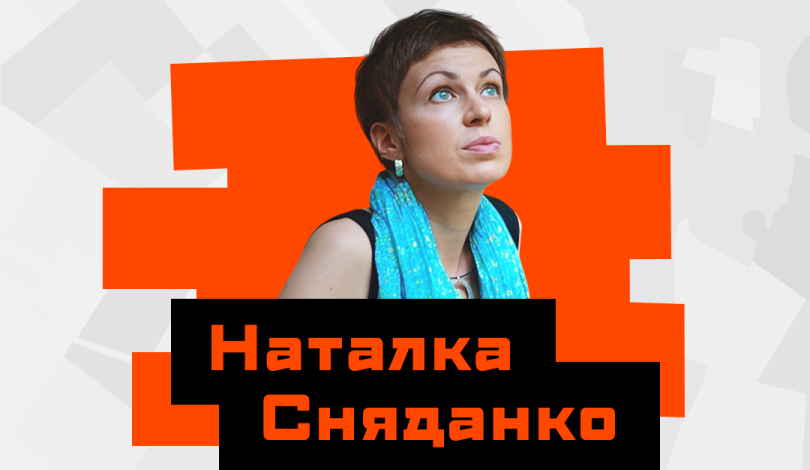When the Bomb Turns into a Metaphor
„I started walking after the theater with the children was bombed,“ writes the Polish poet Jacek Dehnel in his poem „Tenebrae Responsoria.“
To every Ukrainian man and woman, this phrase brings to mind a very specific theater in Mariupol, along with a photograph bearing the inscription „CHILDREN“ that was seen by the entire world. While it seems that this photo is forever etched in everyone’s memory, it is, of course, not the case.
A German friend asks me, „Wasn’t there a high-rise building bombed in Dnipro recently?“ The effort to recall the details is visible on her face as she admits that there are so many catastrophes happening in the world every day that the bad news becomes superimposed on one another. As a result, it isn’t easy to keep up with everything.
At first, the phrase strikes me as cynical and indifferent to the grief of others, and it seems that if a high-rise building were bombed in Germany, her reaction would be different. However, I realize that my reaction, as well as that of my acquaintances, would be different if such an event occurred in Germany. It’s clear that if such an event occurred Ukrainian news would cover it, and it would be discussed on social media for several days – at least for the first time. However, suppose the war in Germany were to last as long as it has in Ukraine. In that case, it’s unlikely that Ukrainian news, let alone social media, would continue closely monitoring every bombed building.
I often try to put myself in the other person’s shoes before getting upset by something that offends or annoys me. I remind myself that no one is obligated to empathize with me, and I should be grateful when someone does. How the world sees us is often different from how we see ourselves, and the theater exemplifies this in Jacek Dehnel’s poem, being specific only to Ukrainians. In subsequent translations, it becomes just a metaphor, a part of the old bad news that gets lost among the new ones bombarding us daily. During a presentation of the new issue of the literary magazine Radar, where the poem was translated into Ukrainian by Ostap Slyvynsky and German by Bernhard Hartmann, I realized how we try to shield ourselves from these doses of bad news.
The reminder that the theater from Jacek Dehnel’s poem remains a concrete theater only for Ukrainians is important to keep in mind when trying to draw attention to Ukraine and why decisions are made so slowly regarding the supply of weapons. It is also relevant when European intellectuals continue to push for a dialogue with the „good Russians.“ While it is true that warnings are given in advance more frequently now, the wording can still be difficult to digest. For instance, when I recently refused to participate in an event due to the presence of Russians, I was told, „Of course, we understand everything. That’s why we warned you in advance, so that you could properly assess your stress resistance.“ Well done, I thought to myself, training my stress resistance.
The other day, the German poet Marcel Bayer told me, „Here in Germany, we think too much about Putin. All talk about the war somehow boils down to Putin. And this is complete absurdity.“ I couldn’t agree more with his perspective.
However, the fact remains that in discussions of war, Russia, if not specifically Putin, always seems to be at the forefront. While this may be frustrating or even surprising, it has a basis in reality. We must recognize this and determine a course of action.
As one of the most prominent German historians and an Eastern European specialist, Karl Schlögel, frankly admits: „Ukraine never existed for us; it was just a white spot on the map.“ In the European consciousness, Ukraine is still regarded as a Russian colony, a province attempting but failing to free itself from Moscow’s influence. Putin is annoyed by these efforts to break free, and this frustration extends to many Europeans as well, as negative news continually surfaces, causing concern.
„Despite all our sympathy for Ukraine, we must not forget about…“ begins the rhetorical statement, and the viewpoints of European intellectuals that follow are unexpected, to say the least. Some argue that providing weapons only serves to escalate the war, not bring peace, while others express concern for the Russian soldiers who are sent to fight without being asked for their consent. There are even those who empathize with Russian writers who feel wrongly associated with the conflict, when in reality, they oppose it. Or they go as far to suggest that too much attention is placed on the Ukrainian perspective, causing Europeans to view the war exclusively through that lens, even though there are multiple viewpoints to consider.
Turning reality into a metaphor and then back again is an ongoing process. Tragic news, gradually forgotten, resurfaces in poems as metaphors. Conversely, the fatigue from Ukraine, which was initially feared at the start of the war and had seemed like a distant metaphor, became a reality. While sympathy and the desire to help have been solid and widespread, fatigue has become undeniable. We must now confront the fact that Ukraine continues to be a white spot on the mental map of Europe, a blemish that continually generates negative news and danger, prompting us to want to protect ourselves instinctively. It’s high time we seriously thought about what we’re going to fill this white spot with other than bad news.
Translated by Yulia Lyubka and Kate Tsurkan











